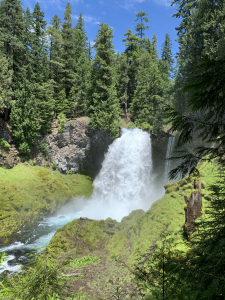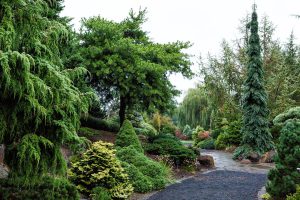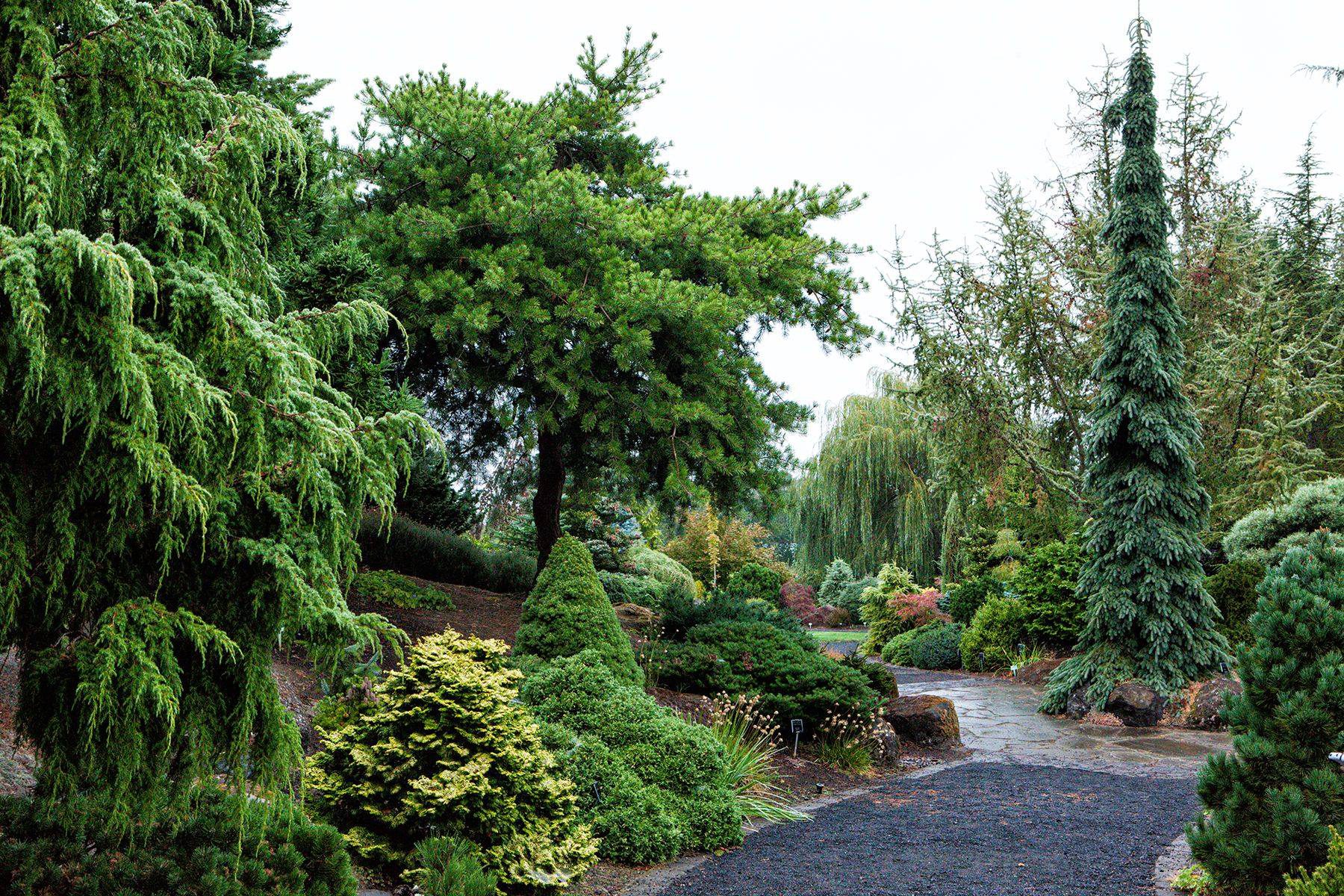 Pastor’s Note – This week (Sunday Sept 20, 2020), we will feature a worship service from Lutherans Restoring Creation, which will also help you and I touch this meaningful idea during these unusual times. Be well. Stay Safe! Enjoy this guest blog from Jeff Sargent
Pastor’s Note – This week (Sunday Sept 20, 2020), we will feature a worship service from Lutherans Restoring Creation, which will also help you and I touch this meaningful idea during these unusual times. Be well. Stay Safe! Enjoy this guest blog from Jeff Sargent
Julia and I went to the Oregon Garden one recent evening for what might be the last time in a long while. It was Taco Tuesday (yum!) and the Garden was open from 6-8 p.m. The temperature was perfect. We strolled through in the vibrant dusk light with very few other visitors in sight, spending most of our time in the Conifer Garden, an absolutely magical place.
Then we returned home, and reality sunk in again. Boxes everywhere. That evening was also our last with Clarence the ficus. We are grateful he will have a cozy new home with some long-time friends in McMinnville, but is it weird to think about missing a TREE? If so, it suits the times.
Step back to March 8th, when we hosted the first meeting at Holy Cross to discuss how the church might be more intentional about caring for creation. How our world has changed since. We have suffered over 6 million cases and 190,000 lives lost to COVID-19 in the U.S., historic job and economic declines, and unprecedented national protests over the death of black Americans in law enforcement hands. In recent weeks, wildfires have ravaged our pristine forests and wiped out entire towns.
One bright spot amidst the upheaval has been that many people have found a new appreciation for the natural world. As stay-at-home orders loosened and mass transportation remained risky, individuals and families throughout the country began flocking in record numbers to state and national parks, seeking refuge in God’s spectacular beauty.
Of course, there is a Biblical foundation for our care for the natural world:
Genesis 1:24-29 24 And God said, “Let the land produce living creatures according to their kinds: the livestock, the creatures that move along the ground, and the wild animals, each according to its kind.” And it was so. 25 God made the wild animals according to their kinds, the livestock according to their kinds, and all the creatures that move along the ground according to their kinds. And God saw that it was good. 26 Then God said, “Let us make mankind in our image, in our likeness, so that they may rule over the fish in the sea and the birds in the sky, over the livestock and all the wild animals, and over all the creatures that move along the ground.” 27 So God created mankind in his own image, in the image of God he created them; male and female he created them. 28 God blessed them and said to them, “Be fruitful and increase in number; fill the earth and subdue it. Rule over the fish in the sea and the birds in the sky and over every living creature that moves on the ground.” 29 Then God said, “I give you every seed-bearing plant on the face of the whole earth and every tree that has fruit with seed in it. They will be yours for food.
“Caring for Creation: Vision, Hope, Justice” is the Evangelical Lutheran Church in America’s (ELCA) statement that calls Lutherans to care for creation because we are full participants in creation itself. The way we participate should imitate the way God cares for creation–as a servant. As people of faith we are to be guided by principles of justice. This involves honoring the integrity of creation and striving for fairness within the human community. The statement, released in 1993, is even more urgent today. In over 25 years since, massive waste and environmental degradation, highlighted further by the pandemic, lay bare the impact of our collective neglect. But it also offers redemption.
- Caring implies keeping, loving the creation, living wisely.
- Creation designates all that exists, but with particular attention to the earth and its entire, complex and interdependent ecology.
- Vision refers to the biblical vision of a flourishing creation.
- Hope refers to the confidence people of faith have that God will bring the whole creation to fulfillment, as God has promised.
- Justice suggests the principles by which people of faith should be guided in their actions today toward the environment.
The statement also identifies the most fundamental threats to creation as being primarily from human activity and injustices: excessive consumption by the relatively well-off, and high population growth and the pressure it puts on creation. Contributing conditions include lack of access to family planning and health care, good education, lack of employment at adequate wages, and unequal rights.
In our first meeting, it was proposed to the congregation that we:
- Discuss what is important to us as members of Holy Cross about God’s creation.
- Form a “Green Team” to draft an action plan outlining how we will care for creation.
- Consider adopting a Covenant to Care for Creation.
Resources to support these efforts can be found at:
https://www.elca.org/Faith/Faith-and-Society/Social-Statements/Caring-for-Creation
This page includes a brief summary of the ELCA statement, the full statements in English and Spanish, and a study guide for congregations.
https://lutheransrestoringcreation.org/
https://lutheransrestoringcreation.org/congregational_covenant_creation/
This page includes a Congregational Covenant and Organizing Kit, along with action plan ideas.
On top of all the changes in 2020, you may have also heard that Julia and I made the difficult decision earlier this year to move to Texas in October to spend a few years with my aging mother and other family. One of the greatest difficulties of this choice will be the loss of our regular time with the Holy Cross family. We have felt so welcomed and loved in your presence and the presence of God there. Holy Cross is such a dear place, with a special leader in Pastor Patricia, and you will always be a part of us. We will follow you from afar and will return to Oregon for visits, so we may see you again from time to time.
But as for how the congregation shares its love for God’s creation, as you seek a return to more regular means of gathering, I hope that you will be willing to revive conversations about the topic. It would be our honor to continue supporting you remotely in this effort if it would be of interest. It will help us to continue worshiping and walking in the garden with you.
Nature is a source of inspiration. It is from where we came and what sustains us. Holy Cross as a congregation of faith is inspired to be engaged with and of service to its community. Being deliberate and joyful about how we care for creation, within the church and beyond, offers us as spiritual beings another means to draw closer to our neighbors, to creation and to God.



